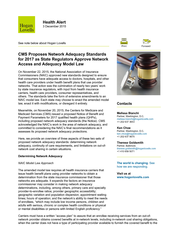Description
profit based on a principle that reflects the actual functions performed by the RO and
the risks it bears can pay EIT in China on its actual profits. In practice, however, with
the exception of ROs in certain industries, most ROs in China are not taxed on their
actual profits. Instead, a deemed profit approach based on the RO's expenses or
revenues can be used to determine the RO's deemed profit, with the minimum
deemed profit rate being 15%.
For an RO that is taxed on a deemed profit approach based on expense, expenses
that are used in the calculation include wages and salaries, welfare expenses, travel
expenses, rental, entertainment expenses and so forth incurred by the RO and its
employees.
10. It sounds like the tax burden on maintaining an RO is going to be much higher
than a WFOE.
Is that right? Yes, generally speaking, the tax burden on maintaining an RO is higher than a WFOE because while a WFOE that is not making profit does not need to pay EIT, an RO that is not making profit but incurring expenses will still need to pay EIT if it is taxed on a deemed profit approach based on expenses. Similarly, a WFOE that is making profit is taxed on its actual profit, meaning its revenue is offset by its expenses to determine the actual profit, but a RO that is taxed on deemed profit approach based on revenues is taxed on its gross revenues, without taking account of any deduction. Special consideration also needs to be paid the IIT situation of how representatives (and chief representative) of an RO are taxed in China. There are special IIT rules applicable only to representatives of an RO that do not apply when an employee is hired by a WFOE. CONCLUSION With the mandatory registration requirement under the Foreign NGO Law, it will be possible for the Chinese authorities to track every movement and activity of Foreign NGOs in China, which can lead to significant tax exposure for Foreign NGOs in China if their activities are not planned properly.
Also, compared to other types of legal entities in China, ROs are subject to a significantly higher tax burden, so Foreign NGOs will want to be fully aware of these tax exposures before undertaking any activities or establishing ROs in China. As the Foreign NGO Law will not come into effect until January 1, 2017, there is some time to assess the impact of the Foreign NGO Law and to assess if a more tax-efficient structure can be used to a Foreign NGO's investment in China. We have prepared an in-house English translation of the Foreign NGO Law, which can be accessed here. .
Is that right? Yes, generally speaking, the tax burden on maintaining an RO is higher than a WFOE because while a WFOE that is not making profit does not need to pay EIT, an RO that is not making profit but incurring expenses will still need to pay EIT if it is taxed on a deemed profit approach based on expenses. Similarly, a WFOE that is making profit is taxed on its actual profit, meaning its revenue is offset by its expenses to determine the actual profit, but a RO that is taxed on deemed profit approach based on revenues is taxed on its gross revenues, without taking account of any deduction. Special consideration also needs to be paid the IIT situation of how representatives (and chief representative) of an RO are taxed in China. There are special IIT rules applicable only to representatives of an RO that do not apply when an employee is hired by a WFOE. CONCLUSION With the mandatory registration requirement under the Foreign NGO Law, it will be possible for the Chinese authorities to track every movement and activity of Foreign NGOs in China, which can lead to significant tax exposure for Foreign NGOs in China if their activities are not planned properly.
Also, compared to other types of legal entities in China, ROs are subject to a significantly higher tax burden, so Foreign NGOs will want to be fully aware of these tax exposures before undertaking any activities or establishing ROs in China. As the Foreign NGO Law will not come into effect until January 1, 2017, there is some time to assess the impact of the Foreign NGO Law and to assess if a more tax-efficient structure can be used to a Foreign NGO's investment in China. We have prepared an in-house English translation of the Foreign NGO Law, which can be accessed here. .
Personal Finance Presentations
+
Personal Finance Sub Categories
Hogan Lovells US













